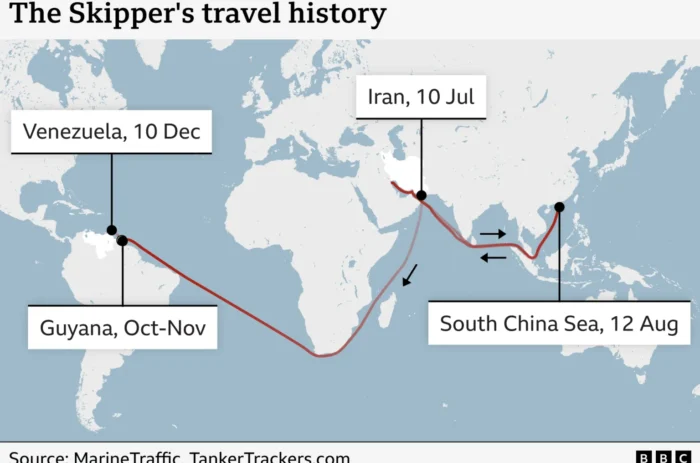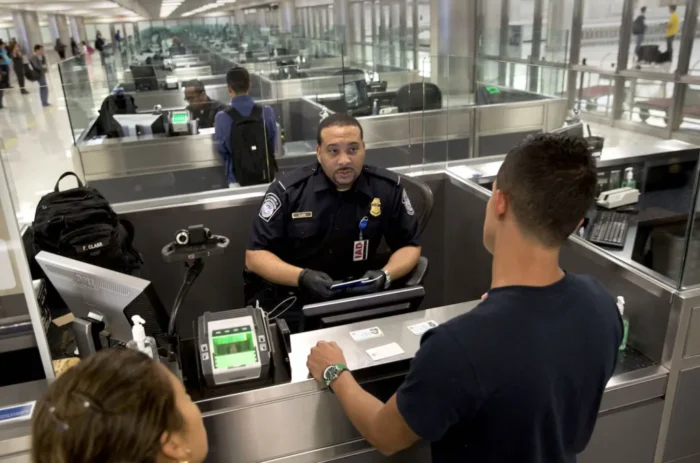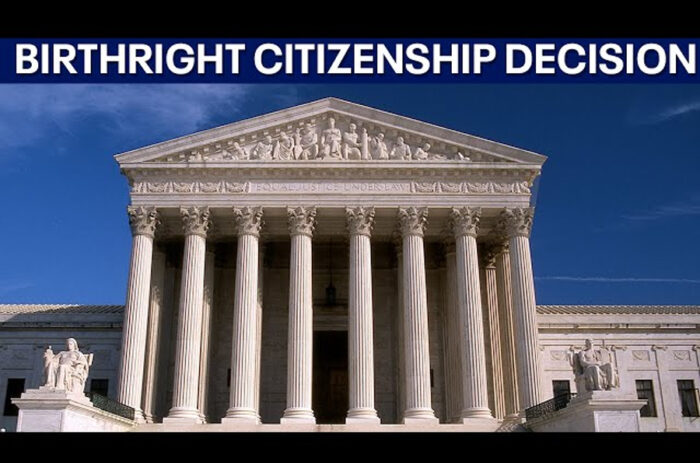redo Jump to...
print Print...
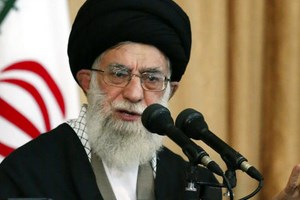
Ayatollah Ali Hosseini Khamenei, Supreme Leader of Iran since 1989, is a Shia Cleric. He had also served as the President of Iran from 1981 to 1989.
(from News.com.au) – IRAN’S supreme leader Ayatollah Ali Khamenei on Wednesday vowed no retreat from Tehran’s nuclear “rights” which France said “complicates” crunch talks getting under way in Geneva.
Predicting the demise of “rabid dog” Israel, which Iran has accused of trying to “torpedo” a deal, Ayatollah Khamenei said the powers* must respect the Islamic republic’s “red lines.” [*P5 plus 1, consisting of the five permanent members of the U.N. Security Council – America, Britain, France, Russia and China – along with Germany. This group negotiates with Iran over its nuclear weapons program and the new talks are planned to last until Friday.]
“I insist on not retreating one step from the rights of the Iranian nation,” Mr. Khamenei, 74, told militiamen of the Basij force in a rare, live televised address.
France said that his comments (Khamenei also said Israel’s leaders were “not worthy to be called human”) are “unacceptable and complicate negotiations” on Iran’s nuclear program.
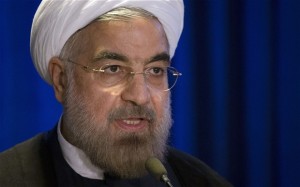
Hassan Rouhani became President of Iran in 2013. He is also a Muslim cleric, lawyer, academic and former diplomat.
Hassan Rouhani’s election as president in June had raised big hopes for an end to the standoff over Tehran’s nuclear program after a decade of failed initiatives and rising tensions. [Rouhani was presented as a moderate but he is not.]
But Israel, believed to have a formidable nuclear arsenal itself although it has never admitted it, has expressed alarm at the deal on the table in Geneva.
Instead of stopping [Iran from] all uranium enrichment, as multiple UN Security Council resolutions have demanded, the powers [P5+1] appear to be happy with a suspension of enrichment at medium levels.
Along with other steps, this would be a “first-phase” deal while a long-term accord is hammered out by Iran and the United States, China, Russia, Britain, France and Germany, known collectively as the P5+1.
For Israeli Prime Minister Benjamin Netanyahu, who arrived in Moscow on Wednesday where he will seek to press Russian President Vladimir Putin to harden his stance, this leaves intact Iran’s ability to make a bomb. “You are not really dismantling any capacity to make fissile material for nuclear weapons,” he said in an interview on Tuesday.
Israel has refused to rule out bombing Iran. [It is believed Israel did bomb] an Iraqi reactor in 1981 and a Syrian site in 2007. Iran says its program is peaceful and the West should condemn Israel’s nuclear arsenal.
 Iran’s uranium enrichment is the main worry for the international community since enriched uranium has civilian uses but is also used to build nuclear weapons.
Iran’s uranium enrichment is the main worry for the international community since enriched uranium has civilian uses but is also used to build nuclear weapons.
Iran already has enough enriched uranium for several bombs if it chose to enrich further to weapons-grade, a “breakout” that – for now – [is believed] the International Atomic Energy Agency UN watchdog would be able to detect.
It remains to be seen whether Iran, seeking an easing of UN, US and EU sanctions that have more than halved the country’s lifeblood oil exports, will accept what it is being offered in return.
On the table in the third meeting since Mr. Rouhani took office is “limited, temporary, targeted and reversible” relief [of the sanctions on Iran] that a senior Obama administration official said “will not come anywhere near helping Iran escape the hole that we’ve put them in.” [President Obama believes easing sanctions on Iran will cause them to end their nuclear weapons program.]
French President Francois Hollande has a different view on Iran’s nuclear program. He said in Israel on Monday “We will maintain the sanctions [until we are] certain that Iran has definitively and irreversibly renounced its military program to obtain nuclear weapons.” …
Iran’s foreign minister [believes they will] reach a deal in Geneva, 10 days after a high-drama gathering in the same Swiss city came close but ultimately failed. “I think there is every possibility for success,” Mohammad Javad Zarif, who also posted a conciliatory but defiant video message online on Tuesday, said on a stopover in Rome.
Mr. Zarif was due to hold bilateral talks with P5+1 lead negotiator and EU foreign policy chief Catherine Ashton later Wednesday. Her spokesman said that political directors from the powers were currently meeting.
But President Obama, fresh from seeking to dissuade lawmakers from imposing new sanctions on Iran, was more cautious: “I don’t know if we will be able to close a deal this week or next week.”
German Foreign Minister Guido Westerwelle said that the last round “showed that a diplomatic solution is possible … At issue now is entering a first phase of confidence-building steps.”
Calling the talks an “historic opportunity” British counterpart William Hague said in Turkey that the differences were “narrow and … can be bridged through political will and commitment.”
From a report by Agence France-Presse. Reprinted here for educational purposes only. May not be reproduced on other websites without permission from News.com.au. Visit the website at news.com.au.
Questions
1. What is the P5+1?
2. How has the P5+1 altered multiple resolutions set forth by the UN Security Council over Iran’s nuclear weapons program?
3. How does France’s position differ from the Obama administration’s position on Iran’s nuclear weapons program?
4. Define sanctions as used in the article.
5. Read the “Background” and “Resources” below the questions. Do you think the P5+1 plan to ease sanctions on Iran in exchange for a hold on part of its nuclear program is the best way to get Iran to end their nuclear weapons program, or should more sanctions be imposed on Iran to force them to act? Explain your answer.
6. At the the United Nations General Assembly meeting in October, Israel’s prime minister Benjamin Netanyahu urged the Assembly to be wary of Iranian president Hassan Rouhani’s “very soothing rhetoric” when it comes to its nuclear-weapons program. “Rouhani is a wolf in sheep’s clothing, a wolf who thinks he can pull the wool over the eyes of the international community,” Netanyahu said. “It’s the brazen contrast, the extraordinary contradiction between Rouhani’s words and Iran’s actions that is so startling.” The prime minister directly addressed criticism that he is exaggerating the threat of a nuclear-armed Iran, citing Nazi Germany as a past “radical regime with global ambitions get[ting] awesome power.” “Have these people learned nothing from history?” he asked of his critics. “The world may have forgotten this lesson; the Jewish people have not,” Netanyahu added.
Ask a parent, and a grandparent, if they agree with Mr. Netanyahu, or do they think he is exaggerating the threat of a nuclear-armed Iran, and to explain their answer.
Background
Why are all sides suddenly interested in a deal?
Sanctions have helped to wreck Iran’s economy. In particular, the vital oil industry is on its knees. In June last year, Iran was still the second-biggest oil producer in Opec after Saudi Arabia, pumping 3 million barrels per day. By this September, its daily production had tumbled by 400,000 barrels to 2.6 million. Given that oil prices exceed $100 per barrel, that fall represents a loss of billions of dollars. So Iran needs to compromise over its nuclear ambitions in order to ease the burden of sanctions. America and its allies, meanwhile, want to contain a nuclear programme that advances month by month and would eventually give Iran the option of building the ultimate weapon.
What about America’s allies?
Both Israel and Saudi Arabia have voiced deep concern about the Geneva talks. They fear that America, over-eager for a deal, will end up signing a fool’s bargain that eases the pressure on Iran’s economy (by easing sanctions) in return for minimal concessions that fail to curb its nuclear ambitions.
Why did the last recent talks fail?
Because of two key sticking points. First, Iran is building a plutonium reactor at Arak which could provide an alternative path to the ability to build a nuclear weapon. At the last talks, Iran was willing to refrain from activating this facility during a six-month interim period. But the reactor would not have been ready anyway, so this was viewed as a dubious concession. France persuaded America and the other world powers to agree to demand that Iran stop constructing Arak. The second sticking point concerned Iran’s “right” to enrich uranium. Mohammad Javad Zarif, the Iranian foreign minister, wanted formal recognition of this included in any agreement. (from London’s Daily Telegraph)
On Barack Obama’s Iran policy:
When US negotiators meet their Iranian counterparts today, Saudi Arabia and Israel both fear that the Americans will be ensnared by a fool’s bargain. They will end up easing the pressure on Iran’s economy, in return for only the merest tactical delay in the country’s nuclear ambitions. That concern is shared by many in Washington. When John Kerry, the US Secretary of State, briefed key senators last week, some in the audience concluded that he wants a deal with Iran at almost any price. “Stop listening to the Israelis on this,” Secretary Kerry is understood to have implored his colleagues.
This was “one of the worst briefings senators have ever sat through,” remarked a Republican Senate aide, who added: “Secretary Kerry trashed the Israeli government and couldn’t defend basic questions about the Geneva deal.” Afterwards, there was “bipartisan contempt for the Geneva process.”
At the heart of this clash lies a fundamental disagreement about the nature of Iran’s regime. By allowing direct talks with Tehran’s emissaries – and picking up the phone himself to call President Rouhani – Mr. Obama has shown that he thinks Iran’s rulers are rational men with whom he can do business. In his view, they take decisions based on cost and benefit, risk and reward, like the leaders of any other country.
With Iran’s economy buckling under the weight of sanctions, President Obama thinks the regime needs a deal. Meanwhile, he wants to rein in the nuclear program. So the trade is obvious: Mr. Obama eases sanctions; Iran freezes its nuclear ambitions well short of the ability to build a bomb.
But Israel, Saudi Arabia and the hawks in Congress think this is hopelessly naïve. Iran’s rulers are not self-interested, rational autocrats: they are the leaders of a revolutionary theocracy dedicated to confronting America at any cost.
“There’s an assumption buried in the Obama approach which is that Iran has gone through some transformation and it has become, for lack of a better word, a ‘normal’ country – that it’s become a nation state, rather than a global movement,” says Mike Doran, a former Bush official who now serves as senior fellow in the Saban Centre for Middle East Policy. “I think that that’s a mistake: I think that it’s still a global movement.”
Privately, some officials in the Middle East fear that Mr. Obama’s one aim is to hold Iran back from the vital threshold beyond which it would achieve the ability to make nuclear weapons until after he leaves office in January 2017. Then, he would never have to face the wrenching dilemma: to bomb Iran, or watch Iran get the bomb. Instead, this agony would be passed on to his successor, while Israel and Saudi Arabia would be left to face the threat posed by a resurgent Iran.
Worldly-wise diplomats voice this kind of argument over late-night dinners. The alternative view is that Mr Obama has genuine strategic vision – and his opponents are prisoners of their own suspicion and phobia. (from a Telegraph article “Barack Obama’s Iran plan”)
Resources
Read an October report: Israel: Easing pressure on Iran would be ‘historic mistake’
ON URANIUM ENRICHMENT:
Enriched uranium is a critical component for both civil nuclear power generation and military nuclear weapons. The UN’s International Atomic Energy Agency attempts to monitor and control enriched uranium supplies and processes in its efforts to ensure nuclear power generation safety and curb nuclear weapons proliferation (buildup).
IRAN’S NUCLEAR PROGRAM:
- Iran’s 20 year secret nuclear program was discovered in 2002. Iran says its program is for fuel purposes only, but it has been working on uranium enrichment which is used to make nuclear bombs. [NOTE ON URANIUM ENRICHMENT: Enriched uranium is a critical component for both civil nuclear power generation and military nuclear weapons. The International Atomic Energy Agency attempts to monitor and control enriched uranium supplies and processes in its efforts to ensure nuclear power generation safety and curb nuclear weapons proliferation (buildup).]
- Under the United Nations’ NPT (Non Proliferation Treaty) countries are not allowed to make nuclear weapons (except for the 5 that had nuclear weapons prior to the treaty – the U.S., Russia, China, France, the United Kingdom).
- Safeguards are used to verify compliance with the Treaty through inspections conducted by the UN’s nuclear watchdog, the IAEA (International Atomic Energy Agency).
- The IAEA has consistently stated it is unable to conclude that Iran’s nuclear program is entirely peaceful.
- The IAEA issued a report on Sept. 15, 2008 that said Iran has repeatedly blocked an investigation into its nuclear program and the probe is now deadlocked.
- The U.N. Security Council has already imposed four sets of sanctions on Iran over its nuclear defiance. Despite the sanctions, Iran has refused to end its nuclear program.
- A group of U.S. and Russian scientists said in a report issued in May 2009 that Iran could produce a simple nuclear device in one to three years and a nuclear warhead in another five years after that. The study, published by the nonpartisan EastWest Institute, also said Iran is making advances in rocket technology and could develop a ballistic missile capable of firing a 2,200-pound nuclear warhead up to 1,200 miles “in perhaps six to eight years.”
- The Iranian government has called for the destruction of Israel on numerous occasions. It is believed that once obtained, Iranian President Ahmadinejad would use nuclear weapons against Israel.
Daily “Answers” emails are provided for Daily News Articles, Tuesday’s World Events and Friday’s News Quiz.
